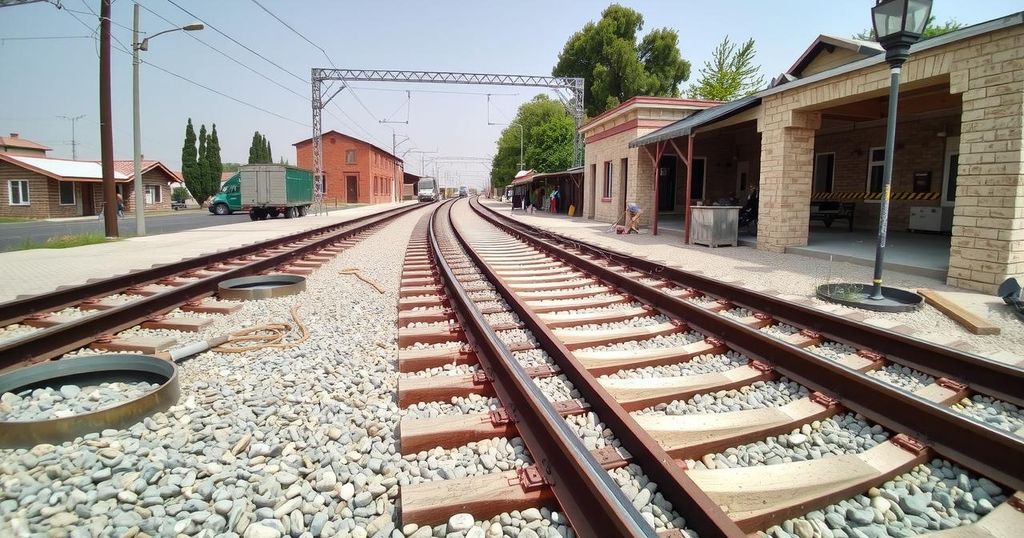Turkey plans to restore sections of the Hejaz Railway in Syria to reconnect Turkish rail lines with Damascus, following over a decade of civil conflict. Transportation Minister Abdulkadir Uraloglu has emphasized the importance of rapid evaluation and action regarding the railway’s restoration. Historical context highlights the railway’s original purpose of enabling Hajj travel and reinforcing Ottoman authority in the region, while current officials are committed to addressing infrastructure challenges in Syria.
Turkey has announced its intention to restore segments of the historic Hejaz Railway within Syria, reestablishing rail connections between Turkish territories and Damascus. This initiative was discussed by Turkey’s Transportation Minister Abdulkadir Uraloglu during a recent meeting with journalists. Uraloglu noted that the restoration efforts are part of a broader agenda to assist Syria in its rebuilding process, following over a decade of civil strife. He emphasized the importance of evaluating the railway situation promptly and highlighted the existing infrastructure, which has not been in operation for an extended period due to a range of challenges, including previous instances of theft of railway materials.
Additionally, President Recep Tayyip Erdogan has directed his cabinet to closely assess the infrastructure deficiencies in Syria and provide requisite support to the newly established caretaker government in Damascus. Historically, the Hejaz Railway was conceived by Sultan Abdulhamid II in 1900, aiming to create a direct rail line from Istanbul to the holy city of Mecca, significantly enhancing accessibility for Hajj pilgrims.
The Hejaz Railway, established during the late Ottoman Empire, was an ambitious project meant to facilitate pilgrimage to Mecca and reinforce Ottoman control over its far-flung provinces. Constructed rapidly and funded by Muslim donations, the railway connected Istanbul to vital points such as Damascus and Medina, although it never reached its ultimate destination due to military and logistical challenges, including sabotage during the Arab Revolt. The railway has historical significance, underscoring the interplay of religion, transportation, and imperial power dynamics in the region.
In summary, Turkey is taking significant steps to revive the Hejaz Railway, a project steeped in historical and cultural importance. By reconnecting rail services to Damascus, Turkey aims to facilitate rehabilitation efforts in Syria following years of conflict. The restoration endeavors not only echo historical ambitions tied to the railway’s inception but also reflect Turkey’s commitment to contributing to regional stability and infrastructure development.
Original Source: www.middleeasteye.net






